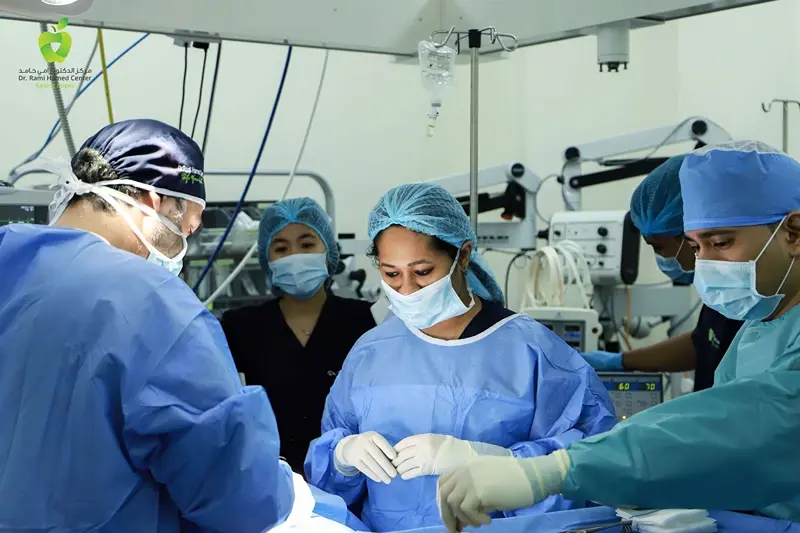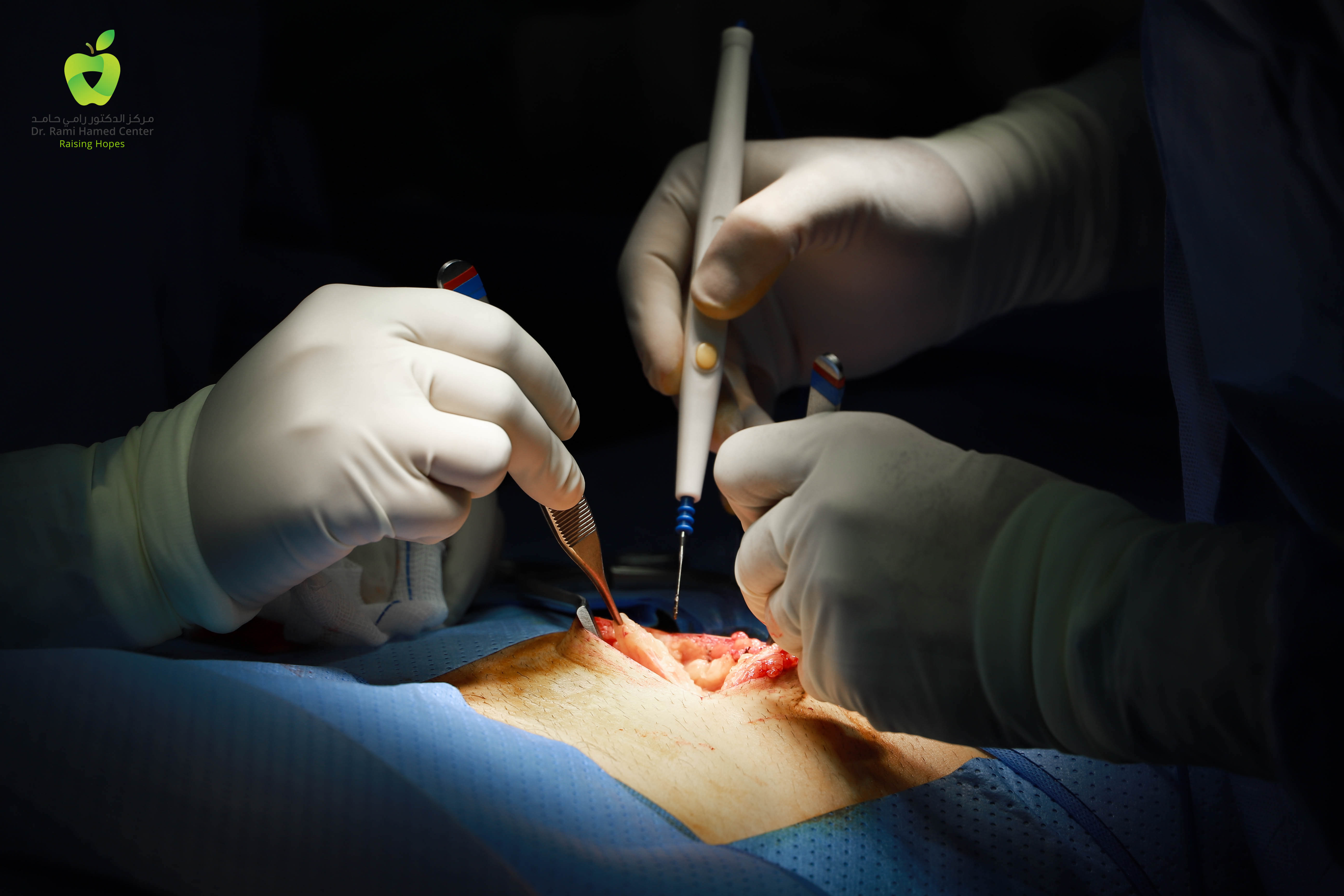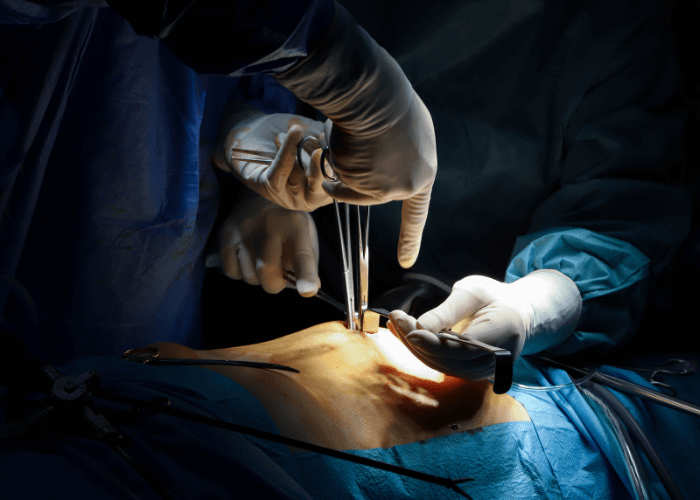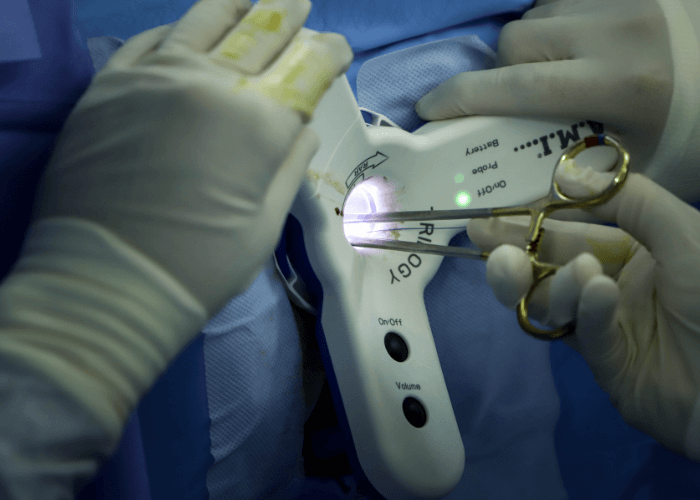Sentinel Node Biopsy at DRHC Dubai
At Dr Rami Hamed Center (DRHC), we prioritize accurate cancer diagnosis and patient-centered treatment planning. Our advanced Sentinel Lymph Node Biopsy (SLNB) service is a cornerstone of effective cancer care, offering precise insights into whether cancer has spread beyond the primary site.
What is Sentinel Node Biopsy?
A sentinel lymph node is the first lymph node that cancer cells are most likely to spread to from the primary tumor. Instead of removing multiple lymph nodes, which can cause complications, SLNB targets only the key nodes, making it a safer, smarter alternative.
The biopsy allows our specialists to determine the stage of cancer, guide further treatment, and avoid unnecessary surgeries.
Who is a Candidate for Sentinel Node Biopsy?
Sentinel Node Biopsy is usually recommended for patients diagnosed with:
- Early-stage breast cancer
- Melanoma (skin cancer)
- Gynecological cancers (e.g., cervical, vulvar)
- Prostate cancer (in select cases)
- Head and neck cancers (in specific clinical situations)
Not all patients are eligible. SLNB is most effective when the lymph nodes are not yet visibly enlarged and imaging does not show distant metastasis.
Before the Procedure: How to Prepare
At DRHC Dubai, your preparation for the procedure may include:
- A pre-operative consultation with our oncologist or surgeon
- Blood tests and imaging studies (e.g., ultrasound, MRI)
- Stopping certain medications (e.g., blood thinners) before surgery
- Fasting before anesthesia, if combined with tumor removal surgery
- Discussion of risks, benefits, and alternatives with your care team
Our goal is to make you feel informed, supported, and confident in your care plan.
How Sentinel Node Biopsy is Done at DRHC
The procedure typically follows these steps:
- Injection of Tracers
A small amount of radioactive tracer and/or blue dye is injected near the tumor site to help locate the sentinel node.
- Lymphatic Mapping
The tracer travels through lymphatic channels to the sentinel node. Using a gamma probe or imaging scanner, the surgeon identifies its location.
- Removal of the Sentinel Node
Through a small incision, the node(s) are removed for pathological analysis.
- Tissue Examination
A pathologist examines the lymph node under a microscope for cancer cells, sometimes using advanced techniques like immunohistochemistry.
Recovery and Aftercare
- Most patients go home on the same day of the procedure
- Mild discomfort, swelling, or bruising at the incision site may occur
- Patients can typically return to normal activities within a few days
- Follow-up is scheduled to discuss pathology results and next steps
- We provide comprehensive post-operative guidance to ensure a smooth and safe recovery.
Why Sentinel Node Biopsy is Important
SLNB helps
- Accurately stage cancer
- Avoid unnecessary treatments
- Prevent complications like chronic swelling (lymphedema)
- Support informed decision-making for future therapies
- Improve long-term outcomes and quality of life
Risks & Side Effects
Though generally safe, potential complications may include:
- Bleeding or infection
- Seroma (fluid accumulation)
- Allergic reaction to blue dye
- Temporary or mild lymphedema
- Numbness or stiffness around the surgical site
Our team is equipped to minimize risks and handle any concerns promptly.



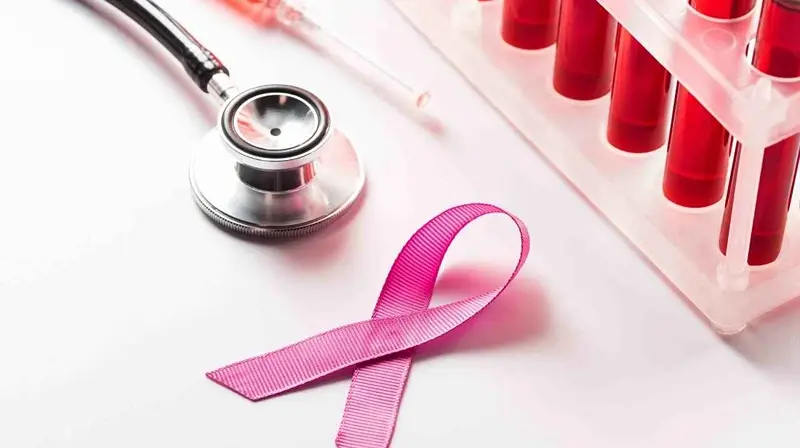
.png?width=280&height=59&name=bookanappointment%20(1).png)
.webp?width=1080&height=1080&name=Doctor%20background%20For%20Website%20Dr.%20Fadi%20Nageeb%2009%20(1).webp)
.webp?width=1080&height=1080&name=Doctor%20background%20For%20Website%20Dr%20Abdul%20Majeed%20Khalid%20%2002%20(1).webp)
